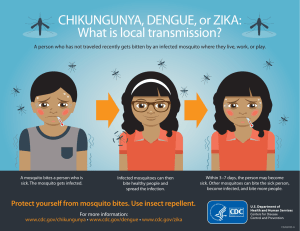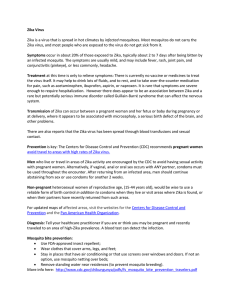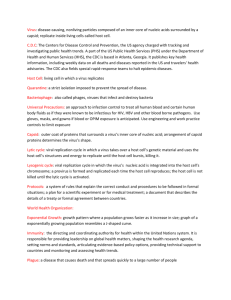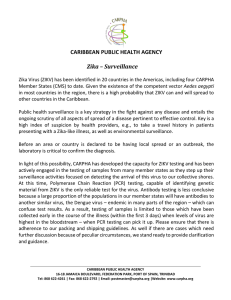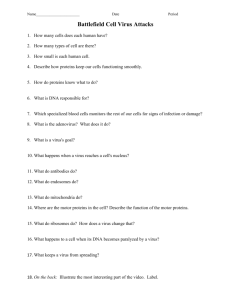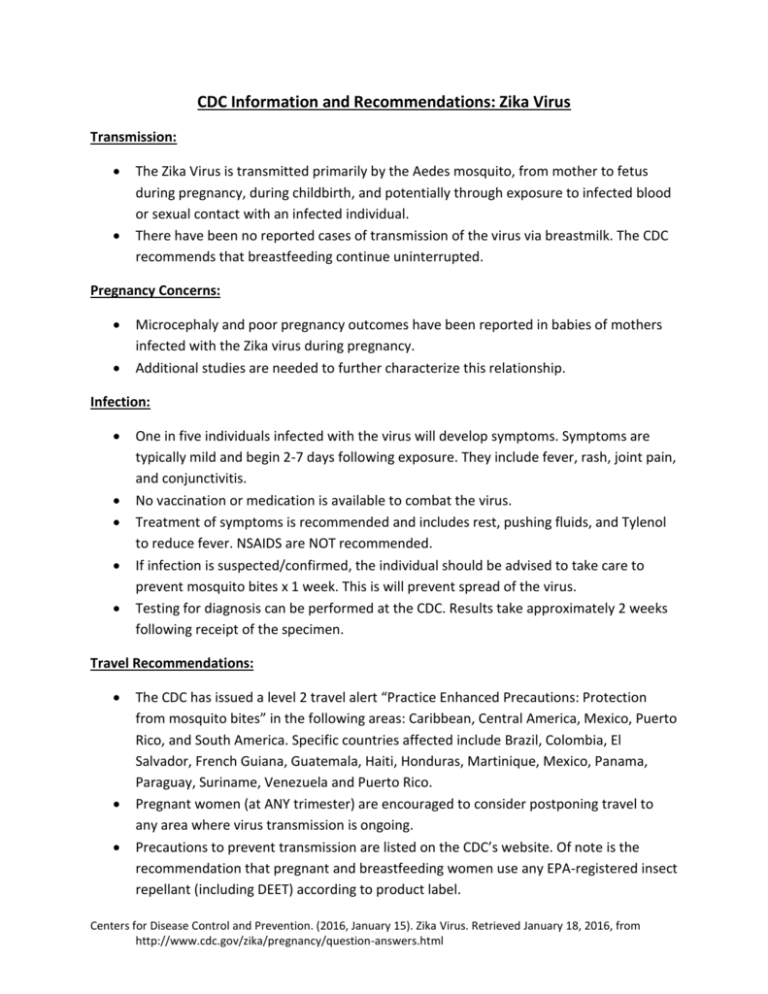
CDC Information and Recommendations: Zika Virus
Transmission:
The Zika Virus is transmitted primarily by the Aedes mosquito, from mother to fetus
during pregnancy, during childbirth, and potentially through exposure to infected blood
or sexual contact with an infected individual.
There have been no reported cases of transmission of the virus via breastmilk. The CDC
recommends that breastfeeding continue uninterrupted.
Pregnancy Concerns:
Microcephaly and poor pregnancy outcomes have been reported in babies of mothers
infected with the Zika virus during pregnancy.
Additional studies are needed to further characterize this relationship.
Infection:
One in five individuals infected with the virus will develop symptoms. Symptoms are
typically mild and begin 2-7 days following exposure. They include fever, rash, joint pain,
and conjunctivitis.
No vaccination or medication is available to combat the virus.
Treatment of symptoms is recommended and includes rest, pushing fluids, and Tylenol
to reduce fever. NSAIDS are NOT recommended.
If infection is suspected/confirmed, the individual should be advised to take care to
prevent mosquito bites x 1 week. This is will prevent spread of the virus.
Testing for diagnosis can be performed at the CDC. Results take approximately 2 weeks
following receipt of the specimen.
Travel Recommendations:
The CDC has issued a level 2 travel alert “Practice Enhanced Precautions: Protection
from mosquito bites” in the following areas: Caribbean, Central America, Mexico, Puerto
Rico, and South America. Specific countries affected include Brazil, Colombia, El
Salvador, French Guiana, Guatemala, Haiti, Honduras, Martinique, Mexico, Panama,
Paraguay, Suriname, Venezuela and Puerto Rico.
Pregnant women (at ANY trimester) are encouraged to consider postponing travel to
any area where virus transmission is ongoing.
Precautions to prevent transmission are listed on the CDC’s website. Of note is the
recommendation that pregnant and breastfeeding women use any EPA-registered insect
repellant (including DEET) according to product label.
Centers for Disease Control and Prevention. (2016, January 15). Zika Virus. Retrieved January 18, 2016, from
http://www.cdc.gov/zika/pregnancy/question-answers.html

